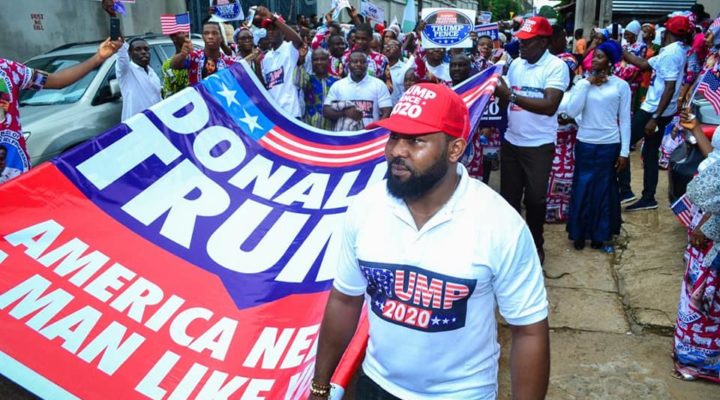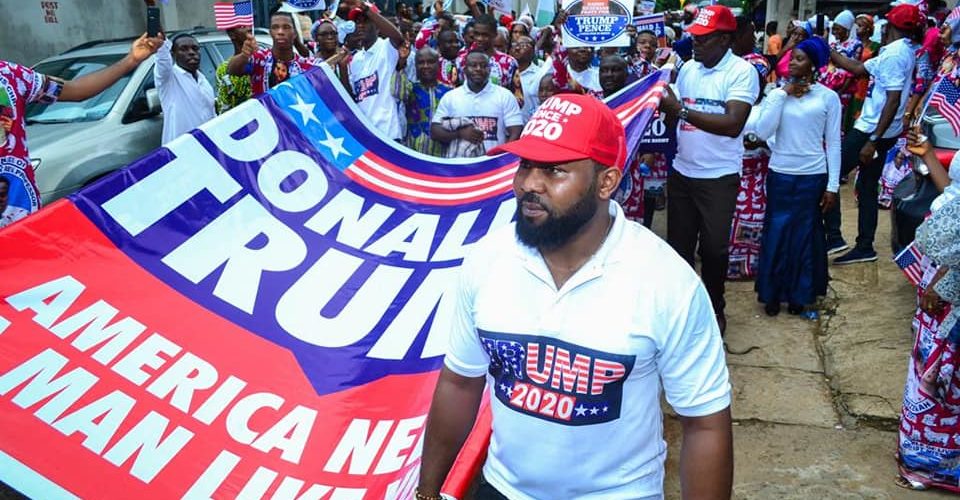On the eve of the Nov. 3 presidential election, a Nigerian of Yoruba extraction in Houston named Ayodele was asked who he would vote for. “I’m for Biden,” Ayodele replied, but he immediately went on to say, in a tone evincing regret, that he had earlier met some Nigerian-Americans of Igbo origin who told him they would vote for the incumbent president, Donald Trump.
“They said Trump is not pro-abortion or pro-gay,” he said, adding, “This election will be tough.”
He was right, as the poll results later showed. Although Joe Biden, the Democratic candidate, had the upper hand in the election, initial results showed a well-contested race, not the one-sided affair most pollsters predicted could happen.
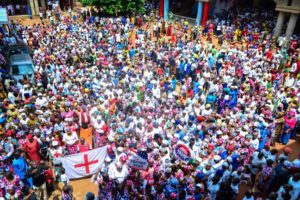
Pro-Trump rally in Nigeria
Trump probably would have garnered more votes from more Igbos, a mainly Christian ethnic group in Africa’s most populous country, Nigeria, were they allowed to vote in the election. Days before the poll, members of a church, the Living Christ Mission, in Onitsha, Anambra State, Nigeria, founded by Daddy Hezekiah, whose birth name is Victor Obi Onukogu, were seen marching the streets of the town in support of Trump’s candidacy. Bearing placards such as “Trump 2020” and “God for President Trump,” they sang songs in Igbo with lyrics that translate, “We will gain victory … pray for Trump to win.”
While this is in no way indicative of the mindset of the entire Igbo ethnic group, it is evidence of the measure of support the Republican candidate enjoys among some Igbo, given the influence church leaders wield over their followers. In Igbo land, the church is a powerful platform for propagating messages, and not a few Nigerian politicians are known to reach out to people through church leaders. Many Igbos openly support Trump, not just for reasons Ayodele cited, but for his seeming defense of the Christian faith and values and policies regarding Israel, a country some Igbo tend to claim a link with, citing a history of antagonism against them by Muslims.
Nigerian president meets Trump
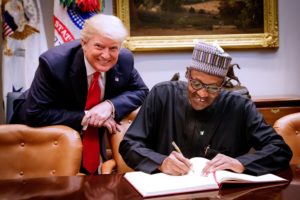
Nigerian President Muhammadu Buhari poses with Donald Trump in the Oval Office.
In 2018, when Trump met with Nigerian President Muhammadu Buhari at the White House, he reportedly said, in regard to the perennial ethno-religious violence that often pits adherents of the Christian and Muslim faiths against one another: “We have had very serious problems with Christians who are being murdered in Nigeria. We are going to be working on that problem very, very hard because we cannot allow that to happen.”
In September this year, Buhari relayed his encounter with Trump, during a session in Abuja: He said: “I believe I was about the only African amongst the least developed countries that the president of the United States invited, and when I was in his office, only myself and himself, only God is a witness, he looked at me in the face and said, ‘Why are you killing Christians?’ I wondered if it were you, I wondered how you will react. I hope what I was feeling inside did not betray me before him.”
This revelation attracted diverse opinions in Nigeria. To some, it showed the American president’s bias for one religion against the other, while to others, it was simply Trump’s bold and brash style coming to light again.
Early in his administration, Trump issued executive orders barring citizens from seven Muslim countries — three of which (Libya, Somalia and Sudan) are African — from entering the United States. Beyond targeting citizens of those countries, his immigration policies over the past four years generally sought to limit migration to the U.S., a move that also raised concern among Africans, as people from the continent are known to make up a sizeable number of immigrants in the U.S. and elsewhere. A 2018 report on Black immigrants in the U.S. by Pew Research Center states: “Much of the recent growth in the foreign-born Black population has been fueled by African migration. Between 2000 and 2016, the Black African immigrant population more than doubled, from 574,000 to 1.6 million. Africans now make up 39% of the overall foreign-born Black population, up from 24% in 2000.”
‘Demonized immigrants’
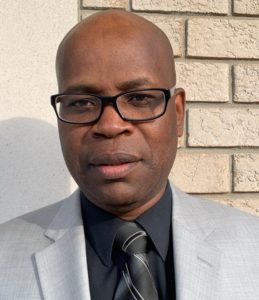
Makori
Assessing Trump’s administration as it affects Africa, Joshua Makori, a Canadian-based Kenyan lawyer, said the American president’s immigration policy “demonized immigrants.” But Muslims from the African continent, like others in Asia, the Middle East or elsewhere, particularly felt targeted by his actions.
Abeer Saady, an Egyptian and vice president of the International Association of Women in Radio and Television, believes Trump is biased against Muslims. “I think he has an issue against Muslims and other ethnicities and people of color. I think he believes very much in the right wing.”

Saady
She recalled that when Trump passed the executive order against travel to the U.S. by some people, and, on a broader scale, countries, it caused a big problem. “I remember some journalists who were award-winners were traveling to receive their awards, they were denied visa and entry to the U.S. They didn’t even distinguish to know why people were coming to America.”
There was also, she said, the case of some members of her association who suffered from the policy. “The suffering extended to women. Some of our members, especially from Iraq, wanted to travel for a U.N. conference on women but were denied visas. They were denied the opportunity of getting visas to contribute to the conference.”
Supporting dictators
Assessing U.S. foreign policy as it concerns Africa, Saady said the Trump administration has been distinguished by its support of dictatorships in places like Saudi Arabia. She considers it “very ironic” that Trump appeared to act against the Muslim religion while at the same time, “he was supporting the dictatorship in the Muslim countries.”
The administration, she added, is all about U.S. strategic interest more than issues of concern to Africa or the Middle East. “They were not speaking about human rights violations in these countries, although there were incidents like the assassination of the famous journalist in his country’s embassy in Turkey.”
On peace efforts in the Middle East, Saady believes the Trump administration “was completely biased and messed up achieving peace.” For example, one of his decisions was to relocate the American embassy from Tel Aviv to Jerusalem. “I think it was not part of peace building,” Saady said. “It was rather a biased policy and at the same time, it was not good for people on both sides in the long term. It was not good for peace.”
She believes Trump has “a leadership problem” as he cares less about bypassing Congress to make decisions that affect other people, including Africans.
“He called Africa a shithole. For the last four years, he never set foot in Africa.”
Makori also rates him poorly. “If I had to rate President Trump, I will give him 2 out of 10. I am not impressed with his style of leadership. The Trump administration has done little if anything to help the African continent. He called Africa a shithole. For the last four years, he never set foot in Africa. This is one of those administrations that needs to be forgotten as quickly as possible.”
Did what he promised
Makori’s view, and Saady’s, are at variance, however, with that of Justine Dyikuk, a Catholic priest and mass communication lecturer at the University of Jos, Nigeria.
To him, some of the policies people criticize Trump for are actually what he promised Americans.
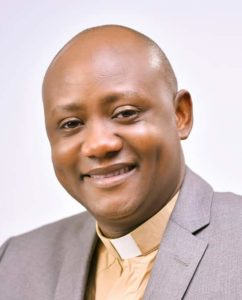
Dyikuk
“I think Donald J. Trump is a political maverick. He is a great leader who has shown the world what it means to say what you mean and mean what you say,” explained Dyikuk. “For example, he promised to move the U.S. embassy from Tel Aviv to Jerusalem and on May 14, 2018, history was made. He also banned some countries from entering the U.S. and attempted building a border across Mexico. He may not have achieved all he promised the American people, but I think he was able to deliver over 80%. Under him, America never went to war and the U.S. enjoyed economic prosperity.”
Dyikuk further argued that Trump’s perceived Christian bias draws from America’s original principles.
“The point must be made that America was built on Christian principles,” he said. “As such, in my view, the four years of Trump’s administration were in keeping with the wishes of the Pilgrim Fathers. We must realize that as a Republican, he has demonstrated respect for life, promotion of the family and respect for religious liberty.”
Reacting specifically to claims of Trump’s anti-Islamic policies, Dyikuk said: “We must be able to distinguish between moderate Islamic principles and terrorism. As a president, Trump has shown zero tolerance for terrorism by showing ISIS the exit door yet dexterously brokering peace between Israel and Palestine, Israel and UAE, Israel and Bahrain as well as Sudan and Israel.”
“If the church supports Trump, it would be because of the manifesto of the Republicans — namely a zero tolerance for abortion and LGBTQ issues.”
While some of Trump’s actions or policies may have endeared him to the hearts of Christian leaders or the church generally, Dyikuk said he is not aware of any official endorsement of Trump by the church in the Nov. 3 election beyond the personal view of some pastors he read on social media. But such a scenario wouldn’t be strange, he said: “If the church supports Trump, it would be because of the manifesto of the Republicans — namely a zero tolerance for abortion and LGBTQ issues. For example, Trump was the first sitting president to speak in person at the annual March for Life.”
Love him or hate him?
Those same attributes are not seen with favor by other Africans, however.
“When it was announced that the world AIDS conference for this year was to take place in San Francisco, people especially in the LGBTQ community, protested because they knew there will be no visas for them,” said Yvonnie Sundu, a Malawian journalist.
Trump, to her, “just like any other leader, has his bad and good sides,” although the negatives, she said, outweigh the positives. “His leadership style left a lot to be desired, especially his pronouncements whether during press conferences, meetings or social media. He was homophobic, which was very surprising and sad at the same time, coming from a global leader and a country which oftentimes forces ideologies or polices on small and undeveloped nations.”
Kensede Obong Okosun, a Nigerian Ph.D. student in Germany, feels differently. “As for Trump, I think he is a straightforward man, calls a spade a spade, period. There has been no war anywhere in the world these past years under him. He hasn’t meddled in African affairs, an indirect way of telling Africans that they are the solution to the continent’s issues. Of course, Africans — particularly Nigerians who love calling for foreign intervention in every domestic matter — would misinterpret this and call him names. He is not like Obama who hypnotizes with oratory but was behind the malaise in Libya and Nigeria. I think Trump is intelligent and strategic in his actions irrespective of his personality.”
Love or hate him, Trump’s impact on Africa — what he did, said or failed to do — will likely continue to generate discussions long after his term as president.
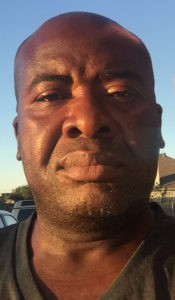 Anthony Akaeze is a Houston-based journalist who began his career in his home of Nigeria. He specializes in reporting on faith from an African perspective.
Anthony Akaeze is a Houston-based journalist who began his career in his home of Nigeria. He specializes in reporting on faith from an African perspective.
This article was made possible by gifts to the Mark Wingfield Fund for Interpretive Journalism.

